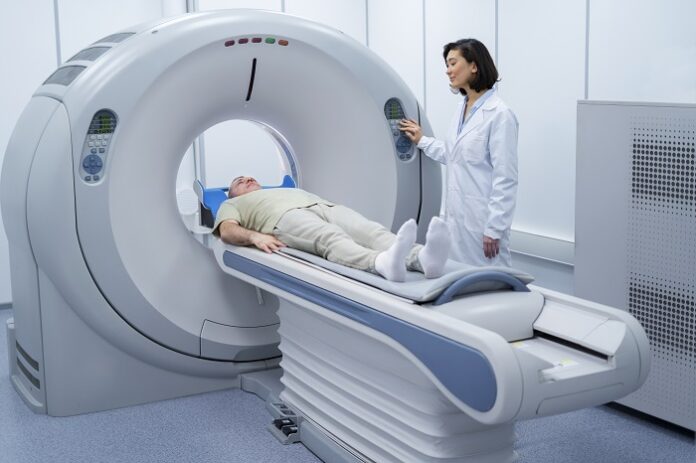India has developed its first homegrown Magnetic Resonance Imaging (MRI) machine, aiming to cut scan costs by over 30%. The project, initiated by the Ministry of Electronics and Information Technology (MeitY) eight years ago, is now nearing completion. Human clinical trials are expected to begin in the coming weeks, and the machine will likely be commercially available by June 2026.
Aiming for Self-Reliance in Medical Technology
Currently, 80-85% of MRI machines in India are imported, increasing healthcare costs and dependency on foreign manufacturers. The Union government seeks to reduce treatment expenses and enhance India’s self-reliance in medical technology. Once ready, the machines will be deployed in government hospitals, research labs, primary healthcare centres (PHCs), and private hospitals and diagnostic centres.
Collaboration Behind the Indigenous MRI
The “Made-in-India” MRI machine is the result of a partnership between AIIMS, New Delhi, and SAMEER, an autonomous R&D institute under MeitY. SAMEER is leading the design, development, and integration of the machine, with support from the Centre for Development of Advanced Computing (C-DAC) and the Inter University Accelerator Centre (IUAC).
Developing an MRI machine is highly complex. SAMEER has handled the Radio Frequency (RF) system and hardware, while C-DAC developed the software, image reconstruction, and algorithms. The superconducting magnet, a crucial MRI component, was built by IUAC, an autonomous body under the University Grants Commission (UGC).
The Road to Deployment
SAMEER is preparing to deploy the machine at AIIMS, New Delhi, by November 2025 for rigorous testing and fine-tuning. Before full-scale commercialization, the machine must undergo human clinical trials, pending approval from the Central Drugs Standard Control Organization (CDSCO). We expect these approvals soon, allowing trials to begin.
Dr P. Hanumantha Rao, Director General of SAMEER, stated that while the initial discovery was significant, the real challenge lies in ensuring the machine meets all safety and quality standards.
Cost Savings and Market Potential
Currently, a 1.5 Tesla MRI machine costs ₹6-9 crore, with prices rising for higher Tesla units. The indigenous MRI machine will be at least 30% cheaper than imported versions, making advanced medical imaging more affordable for hospitals and patients.
Dr Rao emphasized that the goal is not to compete with major global players like GE, Siemens, or Philips but to make MRI technology more accessible across India. The machines will be deployed in government hospitals, PHCs, and research centres. They will also be available for private hospitals and diagnostic centres.
AIIMS Prepares for Testing and Validation
As reported by News18, Dr. Rama Jayasundar is the Head of the Nuclear Magnetic Resonance (NMR) and MRI Department at AIIMS, New Delhi. She confirmed that the hospital currently imports MRI machines from GE, Siemens, and Philips. She highlighted that MRI is a critical non-invasive imaging tool. It helps diagnose and monitor various medical conditions.
She noted that the Make in India initiative for MRI machine development started in 2014, with AIIMS experts actively involved. SAMEER assured AIIMS that it will deploy the indigenously developed MRI scanner for validation and fine-tuning by the end of this year. AIIMS will conduct rigorous testing and provide feedback to ensure the machines meet global imaging and safety standards.
A Step Towards Affordable Healthcare
With this initiative, India is taking a significant step toward self-sufficiency in medical technology. The indigenous MRI machine will make advanced diagnostics more affordable and accessible. It will benefit hospitals, healthcare providers, and millions of patients across the country.
























